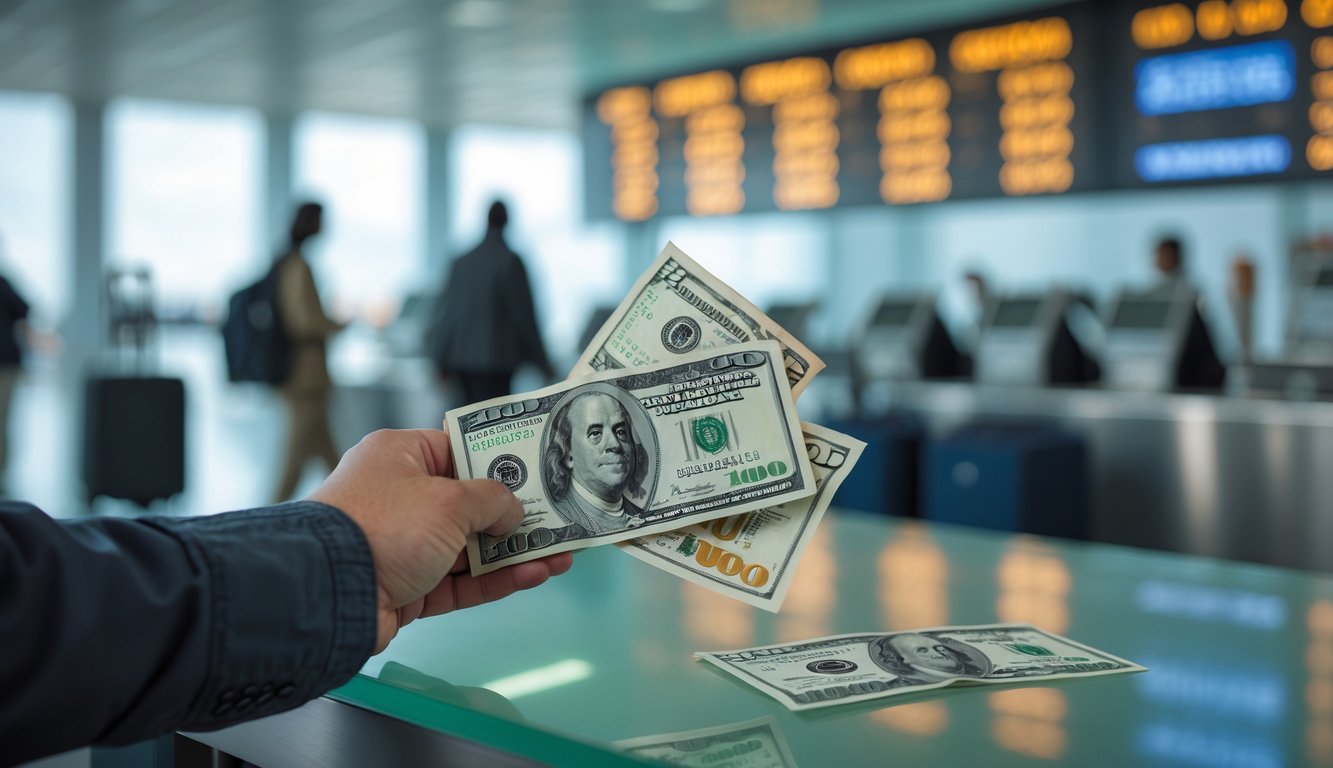
Planning Your Trip: Adapting to Changing Exchange Rates
So, what’s the real killer for my travel budget lately? Not flights, not hotels—currencies just quietly gnaw away at my plans while nobody’s looking. The US dollar goes up or down, and suddenly Tokyo or Paris is either a steal or a nightmare. What am I doing about it? Nothing genius, just a few things that mostly work. I wish I could say I have a system, but let’s be honest—half the time I’m winging it.
Monitoring Currency Trends
I’m glued to forex charts (and, for no reason, Berlin weather). When the dollar jumps against the yen, Starbucks in Shibuya gets cheaper overnight. Nobody sends you an alert, but the price difference is real. Most people ignore this stuff, but I check OANDA, sometimes XE.com, though their graphs are always a little late. Chris Kawashima at Charles Schwab says to watch rates weekly for three months before a trip. Does anyone actually do that? Not me. But even a tiny shift can make a difference, so I scribble percentage changes on my itinerary like some kind of paranoid accountant. If you’re still asking your bank for currency forecasts—don’t. They’re useless and always worst-case.
Adjusting Your Travel Budget
I want to say “pad the budget by 10%” and call it a day, but currencies laugh at my plans. Last fall, the euro was at 1.20; now it’s 1.06? That $70 lunch in Rome doesn’t sting as much, but I still cut out a museum when the euro acts up. My “hack” is a real-time line in my budget that updates every morning so I don’t spend like I’m on Monopoly night. Before I book, I open two browser windows: Google’s converter and the hotel’s checkout page. Watch out for that sneaky “USD” option—they bake in a 2-3% markup, easy. That’s $70 gone on a $3,000 stay. Honestly, I’ve picked destinations just because the dollar was strong there—some experts say that’s smart, my friends say it’s nerdy. Also, “all-inclusive” is a joke if your budget’s based on last month’s rates.
Tools and Resources for Tracking Rates
There’s a million apps promising to “keep you ahead,” but I just bounce between XE, Revolut, and my bank’s glitchy portal. Wise (TransferWise) currency alerts? Actually useful. They don’t spam you, and you get a ping when your target rate hits. All the calculators are free, and the premium ones are pointless unless you’re wiring money or living abroad. Allianz has a surprisingly readable currency explainer. Travel budget templates with live exchange rates exist—FasterCapital has a step-by-step template I used for Portugal. Watching my “miscellaneous” line swing by $30 as the euro twitched was… not fun. I tried a plugin that converted every price to USD in real time, but it made me so anxious I uninstalled it after three hours. At some point, you have to just ignore the little fluctuations or you’ll never book anything.
Frequently Asked Questions
Exchange rates are chaos. Tokyo hotels that felt insane in 2022 suddenly seem normal, but then Buenos Aires triples your dessert bill before you finish dinner. Sometimes the math is obvious, sometimes you’re just like, “Wait, why is this cappuccino in Prague cheaper than airport chips in New York?”
Where can Americans travel internationally for the best value due to favorable exchange rates?
I chase places where my dollars go further, but my bank account still tells me to chill. Mexico and Vietnam? Still wild what $10 buys in street food. Southeast Asia is the real MVP—my dentist swears the Philippines is the only place he comes home richer. I checked the latest exchange rates: the peso has mood swings, but Taco Tuesday always wins. Why does my cash evaporate in London but turn into a feast in Hanoi? No idea.
What are the most budget-friendly destinations in Europe where the U.S. dollar goes the furthest?
Whoever told me about Budapest and Kraków deserves a medal. Five museums, two pastries in Hungary for the price of a single Paris bus ticket. Further east, fewer angry bank texts. Portugal’s supposed to be cheap, but Lisbon’s coffee went up before I finished my first cup. I stalk rate trends in Europe like I’m cramming for finals. Ask a Swede if Stockholm is cheap—they’ll just laugh.
Which countries currently offer the strongest purchasing power for travelers with U.S. dollars?
Argentina is wild. One month you’re eating steak every night, next month hyperinflation eats your budget for breakfast. Turkey’s lira dropped so fast I had to Google “currency trauma.” Remitly says inflation and economic drama flip the script every season, so today’s bargain can slap you by next month. Ask hotel staff what locals pay—sometimes it’s shocking, sometimes just depressing.
What are the top places to visit where the U.S. dollar has a significantly lower value?
London, Zurich, Oslo—gorgeous, but my budget gets destroyed in every pastry shop. If your cappuccino costs $8, don’t blame me. Swiss franc and British pound just mock my efforts. Nobody actually checks Monaco’s daily costs for fun, but I did, and regretted it. Did my math wrong, ended up with sparkling water for dinner. Live and learn.
What destinations should U.S. travelers consider for affordable trips due to good exchange rates?
This summer, everyone’s raving about Poland, Colombia, Indonesia for stretching dollars. My cousin swears you can buy dinner and a museum ticket in Medellín with spare change. Latest travel budget tips say the best value is never in selfie-packed capitals. Book in local currency, not dollars—your bank’s “conversion fees” are just sneaky losses. No joke.
How can travelers identify locations where their travel budget will be stretched by positive exchange rate trends?
So, here’s my life now: I’m glued to those XE currency charts, like I’m about to day-trade my way to a cheap vacation. The euro tanks, I get excited, and then, out of nowhere, flights double. Why does this always happen? I keep seeing these so-called Travel Price Index updates from U.S. Travel Association—they’re supposed to help, but honestly, I can’t tell if they’re useful or just another shiny distraction. My neighbor’s kid (he’s in college, so obviously he knows everything) keeps insisting inflation numbers matter more than travel blogs. Is he right? I don’t know, but now I feel dumb reading blogs.
Seriously, never, ever trust those airport exchange counters. I mean, do people still fall for that? That’s not even advice, it’s just basic self-preservation at this point. Oh, and here’s a weird thing—if you catch taxi drivers arguing about which exchange app is better, check your own app right then. Local rumors? Way more reliable than any official news, at least in my experience.



